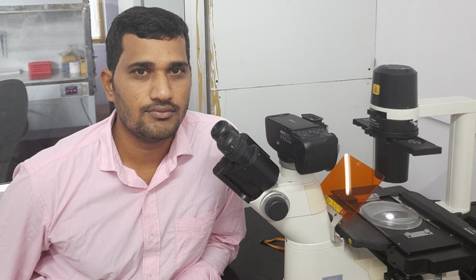Ministry of Science & Technology
DST INSPIRE faculty from Chennai working on alternative anti-cancer therapy using transgenic zebrafish
Posted On:
20 JAN 2021 1:52PM by PIB Delhi
Scientists are exploring an alternative anti-cancer therapy that involves targeting tumor generated the formation of new blood vessels which allow the delivery of oxygen and nutrients to the body's tissues, technically called angiogenesis.
Angiogenesis is critical in the growth of cancer because tumors need blood supply to grow. Tumors trigger the growth of blood cells by giving off chemical signals that stimulate angiogenesis. Deregulation of angiogenesis is the main reason for tumor growth and progression.
Inhibition of tumor angiogenesis has become a popular anti-cancer strategy after chemotherapy. However, the clinically approved anti-angiogenic drugs are ineffective due to parallel activation of various compensatory mechanisms involving a cascade of molecules, which aids tumor angiogenesis and investigation of these mechanisms are essential for developing anti-angiogenic therapies.
Dr. Vimalraj Selvaraj from Centre for Biotechnology, Anna University, Chennai, a recipient of the INSPIRE Faculty Fellowship instituted by the Department of Science & Technology, Government of India, is exploring the role of compensatory angiogenesis signaling cues as key targets for cancer therapy.
He has already found that nitric oxide (NO) plays a key role in switching off angiogenesis under tumor microenvironment and that the melatonin hormone suppresses tumor angiogenesis. The research published in the journals Microvascular Research, Life Sciences and Nitric Oxide, has shown that compensatory mechanisms could be a potential therapeutic target for developing effective anti-cancer treatment regimes.
Using the INSPIRE Faculty program Dr. Vimalraj and his research team is further working to develop transgenic zebrafish (which have exogenous genes added to their genome) model by use of the CRISPR/Cas9 gene-editing tool to further study the compensatory angiogenesis mechanism in tumor microenvironment. Differential expression of biomolecules between two types of angiogenesis (sprouting angiogenesis and intussusceptive angiogenesis ) and their molecular mechanism will be analysed using transgenic zebrafish models in tumor microenvironment.
The transgenic or CRISPR/Cas9 edited Zebrafish platform (TZP) can be used for studying the efficacy of a drug as anti or pro-angiogenesis in the next phase of the project.
The transgenic zebrafish model has been selected for the intussusceptive angiogenesis study because of its rapid development, optically transparent, high yield in offspring, and easy techniques for forward and reverse gene manipulation. The CRISPR/Cas9 edited zebrafish platform will also be used for studying the efficacy of a drug as anti or pro-angiogenesis in the next phase of the project.

Vimalraj Selvaraj, DST-INSPIRE Faculty
For more details, Dr. Vimalraj Selvaraj (vimalr50@yahoo.com, vimalr50@annauniv.edu) can be contacted.
*****
NB/KGS/(DST Media Cell)
(Release ID: 1690326)
Visitor Counter : 943